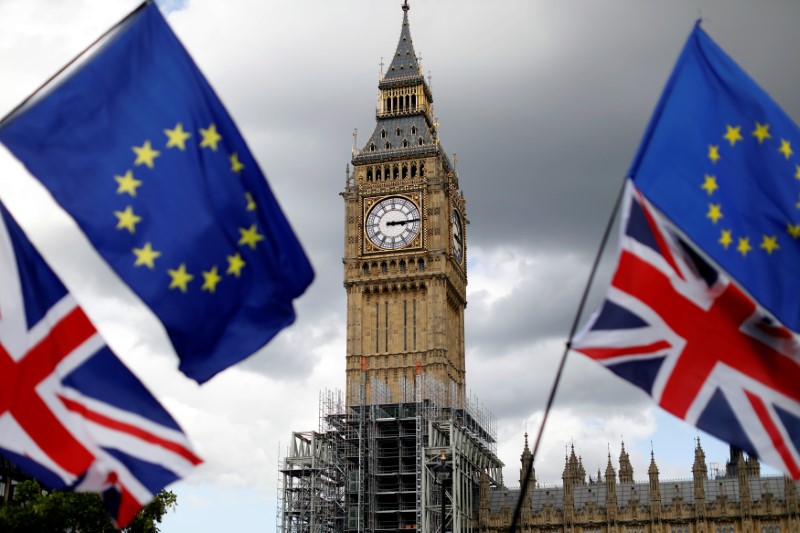By William James
LONDON (Reuters) - Britain wants to have closer defence cooperation with the European Union after Brexit than other countries outside the union, according to a document that sets out a vision of "a deep security partnership" aimed at nudging talks forward.
Stating that Britain is "unconditionally committed" to maintaining European security, the government said it wanted to contribute military assets to EU operations after it leaves the bloc and may offer to continue exchanging classified information.
The pledges were detailed in the government's sixth "future partnership paper" - part of efforts to counter criticism by EU officials that it is not prepared for negotiations to unravel more than 40 years of union.
Underlining that Britain has the largest defence and development budgets in Europe, officials pressed what they consider to be one of their strongest arguments - that the government can offer defence and security support to the EU.
"At a time of increased threats and international instability, the UK remains unwavering in its commitment to uphold European security," Defence Secretary Michael Fallon said in a statement.
Britain's role in the continent's defence "has never been more vital," he said.
Britain has deployed troops in some Baltic states to counter a resurgent Russia, has worked with the EU to tackle piracy off the Horn of Africa and worked on joint defence projects, such as the Eurofighter Typhoon aircraft.
LEVERAGE
The EU executive said it would analyse the British proposal but stressed its policy of not opening negotiations on its future relationship with Britain until there is more progress on settling the terms of the British withdrawal from the bloc.
"The EU is willing to establish partnerships with the UK in areas unrelated to trade, in particular the fight against terrorism and international crime as well as security, defence and foreign policy," the European Commission’s chief spokesman Margaritis Schinas told reporters.
Pro-Brexit supporters argued before the EU referendum last year that closer defence cooperation between the bloc's member states was another sign of closer union, and on Tuesday the Veterans for Britain group said the paper was "a grave mistake".
Tuesday's paper was intended as a conversation-starter rather than a concrete negotiating position, setting out areas such as information and personnel exchanges where Britain could contribute to European security, subject to negotiations.
Some in Britain have suggested defence cooperation could be used as leverage in talks that so far have moved slowly, bogged down in arguments over the divorce bill.
But its usefulness as leverage to push talks forward could be limited by the acknowledgement in the paper that Britain also benefits from security and intelligence sharing.
"To meet our shared threats and maintain our values, continuity of areas that are at the heart of our joint foreign policy, defence and security, and development of infrastructure will be vital," the paper said.

(additional reporting by Elizabeth Piper; Editing by Janet Lawrence)